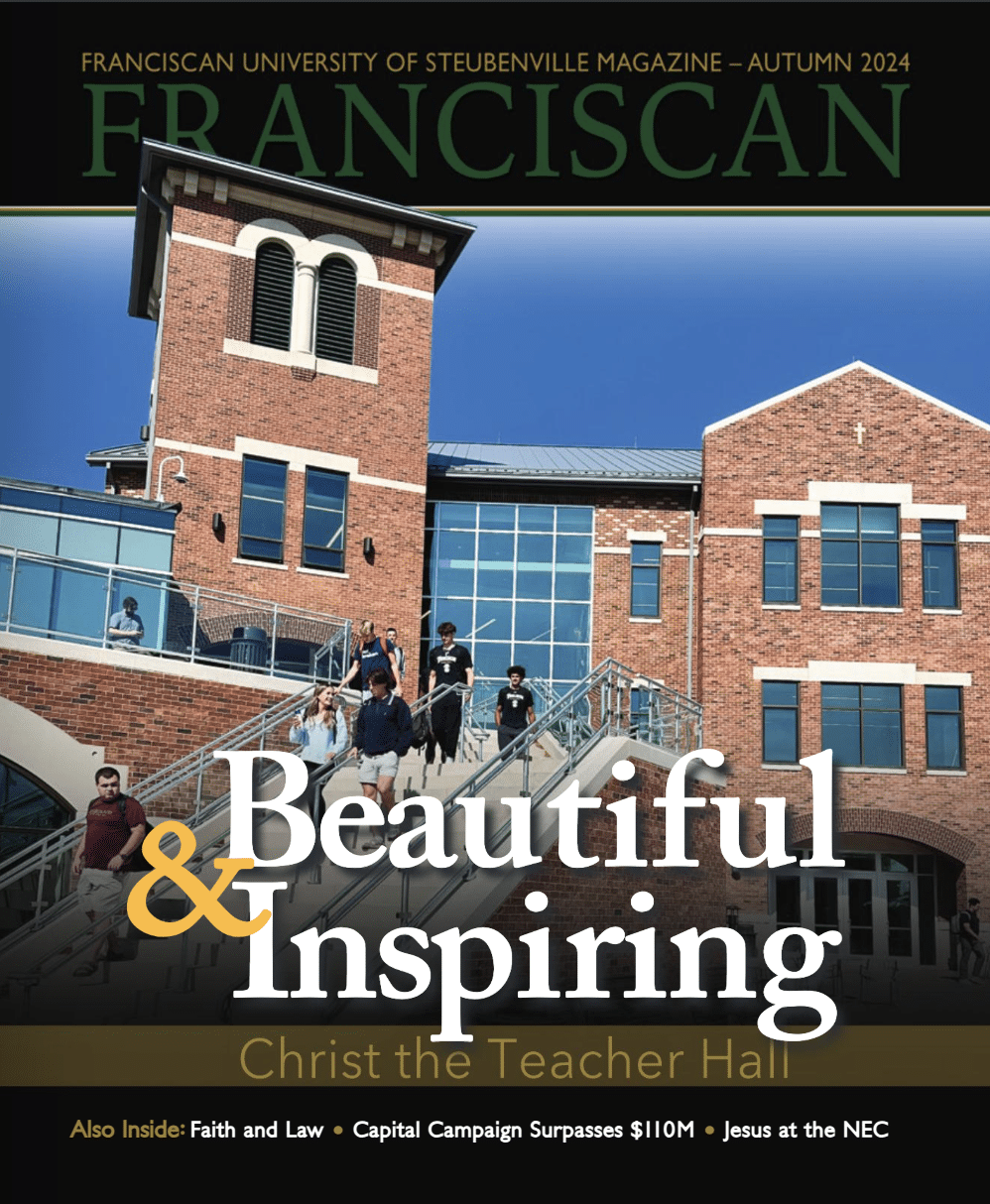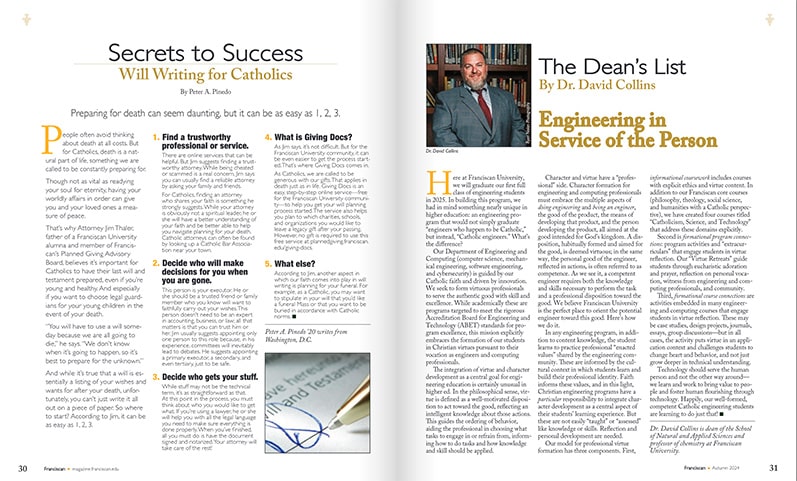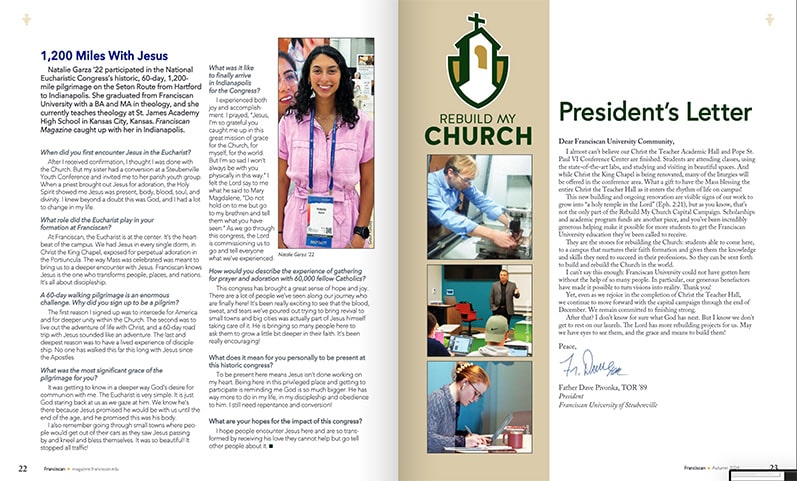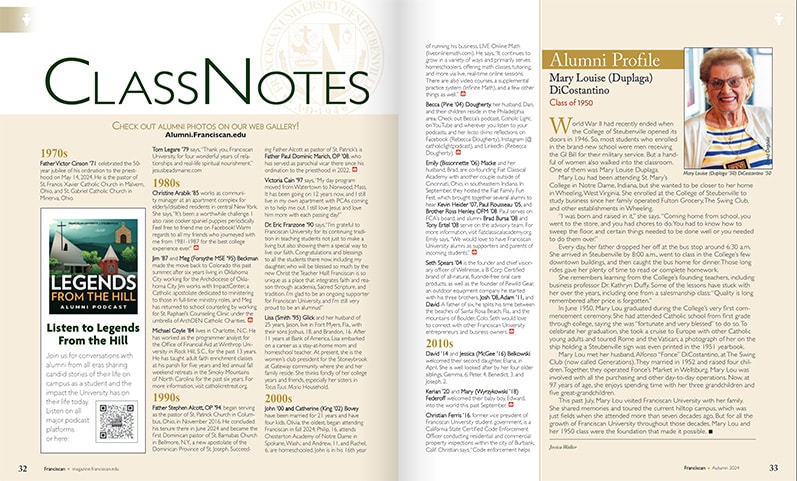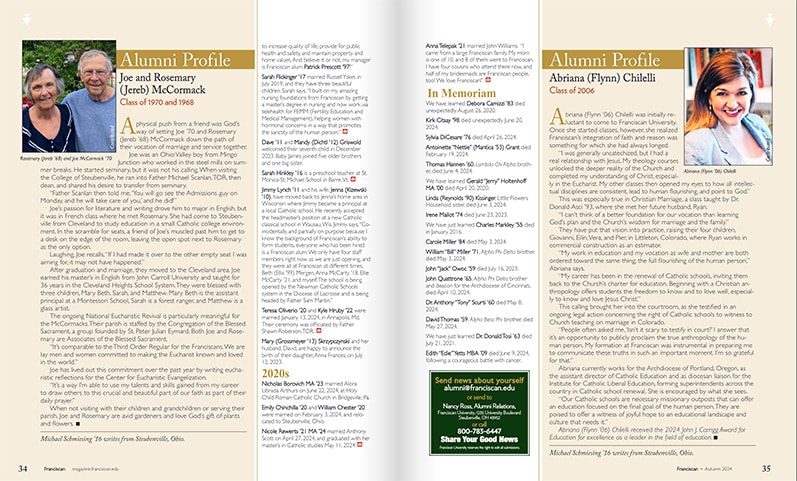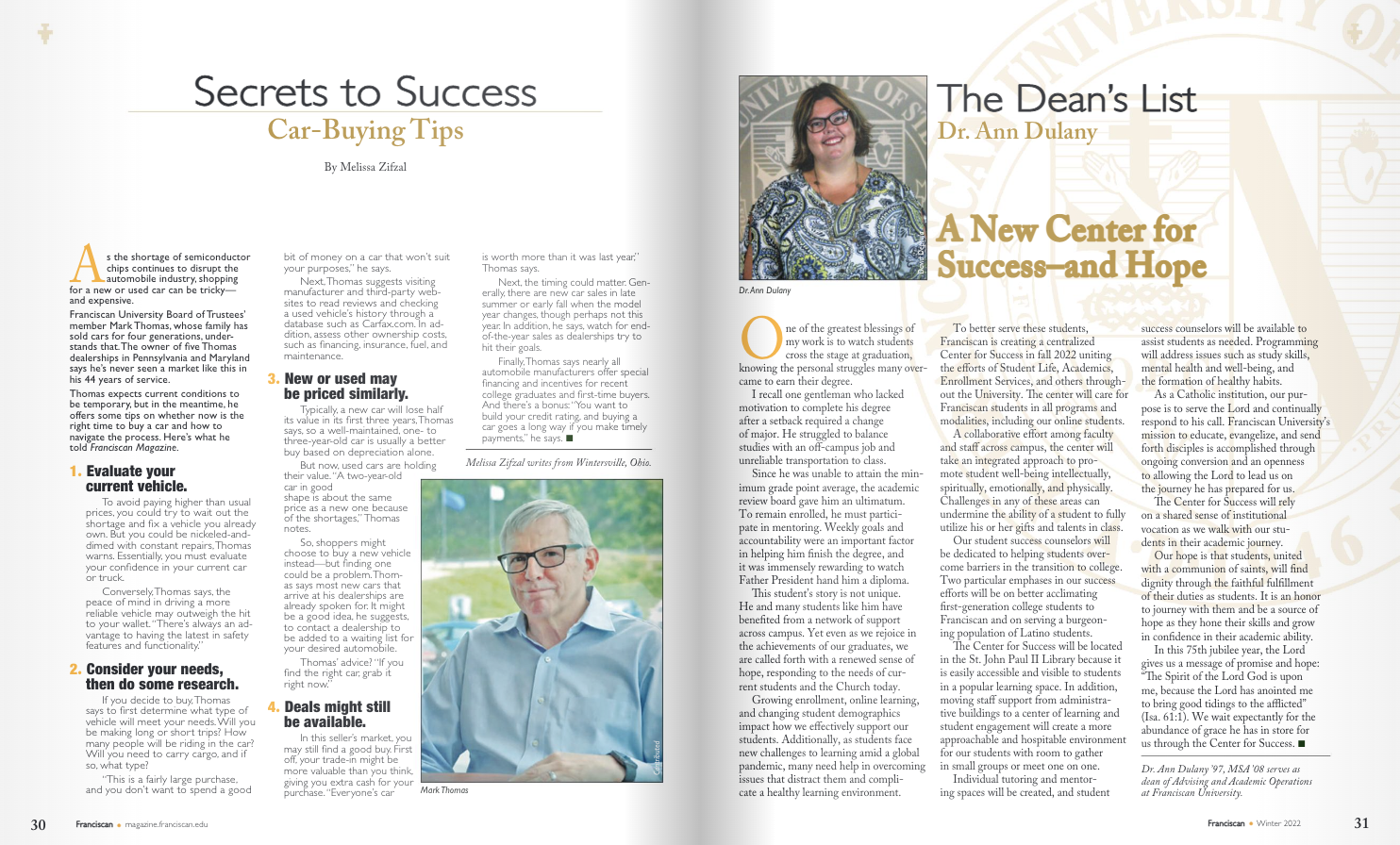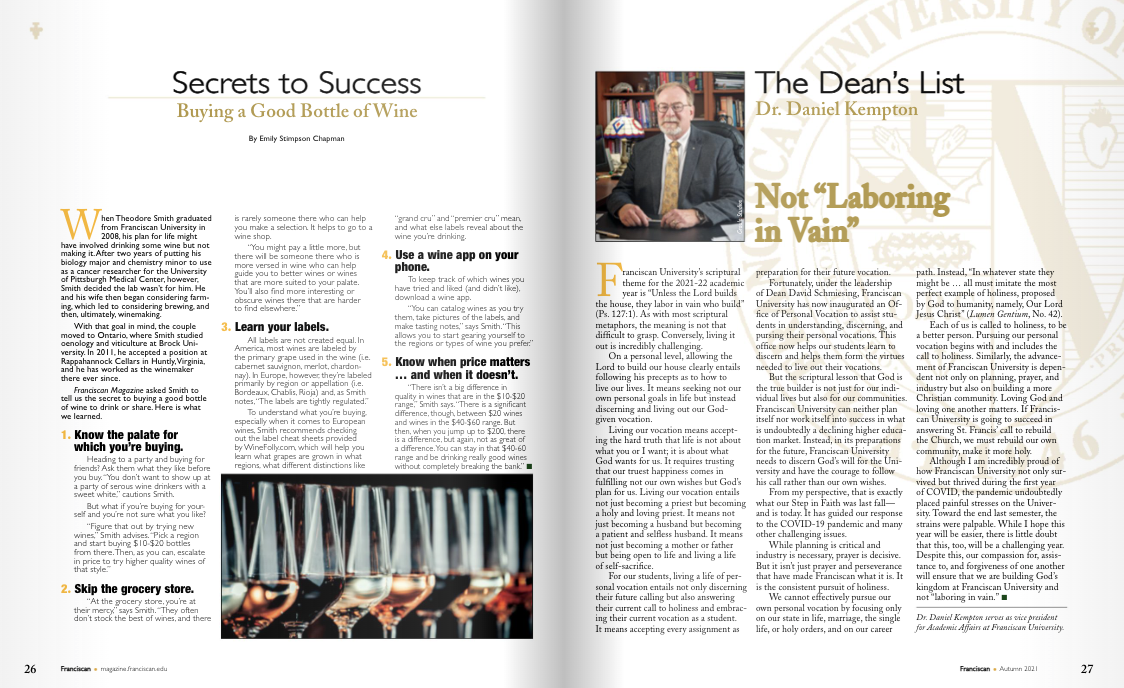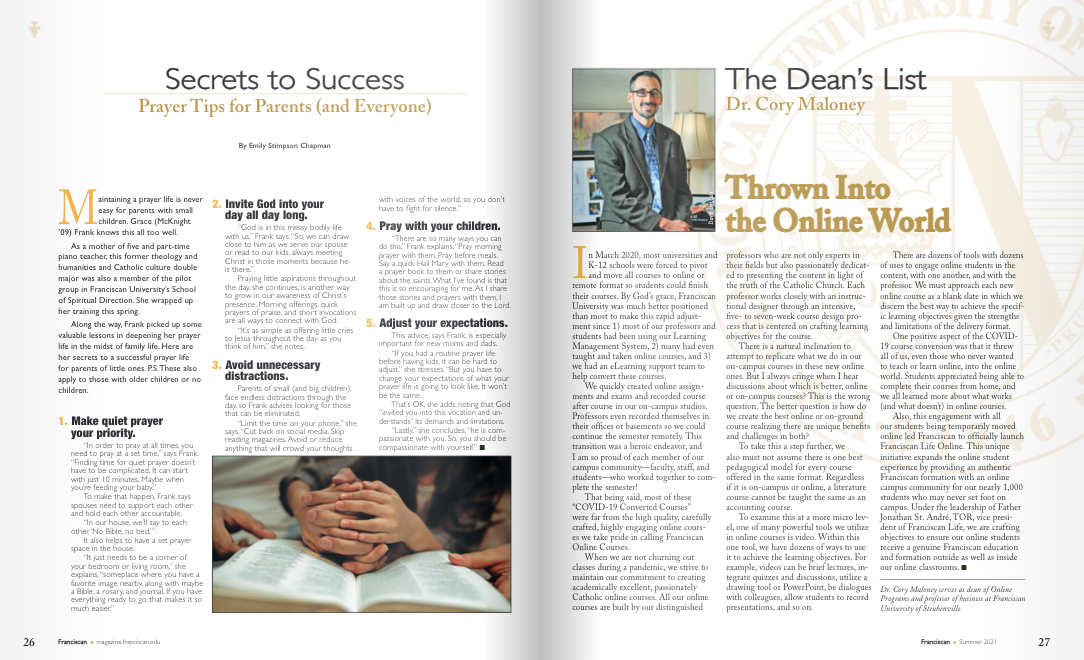People often avoid thinking about death at all costs. But for Catholics, death is a natural part of life, something we are called to be constantly preparing for.
Though not as vital as readying your soul for eternity, having your worldly affairs in order can give you and your loved ones a measure of peace.
That’s why Attorney Jim Thaler, father of a Franciscan University alumna and member of Franciscan’s Planned Giving Advisory Board, believes it’s important for Catholics to have their last will and testament prepared, even if you’re young and healthy. And especially
if you want to choose legal guardians for your young children in the event of your death.
“You will have to use a will someday because we are all going to die,” he says. “We don’t know when it’s going to happen, so it’s best to prepare for the unknown.”
And while it’s true that a will is essentially a listing of your wishes and wants for after your death, unfortunately, you can’t just write it all out on a piece of paper. So where to start? According to Jim, it can be as easy as 1, 2, 3.
1. Find a trustworthy professional or service.
There are online services that can be helpful. But Jim suggests finding a trustworthy attorney. While being cheated or scammed is a real concern, Jim says you can usually find a reliable attorney by asking your family and friends.
For Catholics, finding an attorney who shares your faith is something he strongly suggests. While your attorney is obviously not a spiritual leader, he or she will have a better understanding of your faith and be better able to help you navigate planning for your death. Catholic attorneys can often be found by looking up a Catholic Bar Association near your town.
2. Decide who will make decisions for you when you are gone.
This person is your executor. He or she should be a trusted friend or family member who you know will want to faithfully carry out your wishes.This person doesn’t need to be an expert in accounting, business, or law; all that matters is that you can trust him or her. Jim usually suggests appointing only one person to this role because, in his experience, committees will inevitably lead to debates. He suggests appointing a primary executor, a secondary, and even tertiary, just to be safe.
3. Decide who gets your stuff.
While stuff may not be the technical term, it’s as straightforward as that. At this point in the process, you must think about who you would like to get what. If you’re using a lawyer, he or she will help you with all the legal language you need to make sure everything is done properly.When you’ve finished, all you must do is have the document signed and notarized.Your attorney will take care of the rest!
4. What is Giving Docs?
As Jim says, it’s not difficult. But for the Franciscan University community, it can be even easier to get the process started. That’s where Giving Docs comes in.
As Catholics, we are called to be generous with our gifts. That applies in death just as in life. Giving Docs is an easy, step-by-step online service—free for the Franciscan University community—to help you get your will planning process started. The service also helps you plan to which charities, schools, and organizations you would like to leave a legacy gift after your passing. However, no gift is required to use this free service at plannedgiving.franciscan.edu/giving-docs.
5. What else?
According to Jim, another aspect in which our faith comes into play in will writing is planning for your funeral. For example, as a Catholic, you may want to stipulate in your will that you’d like a funeral Mass or that you want to be buried in accordance with Catholic norms.
Peter A. Pinedo ’20 writes from Washington, D.C.




